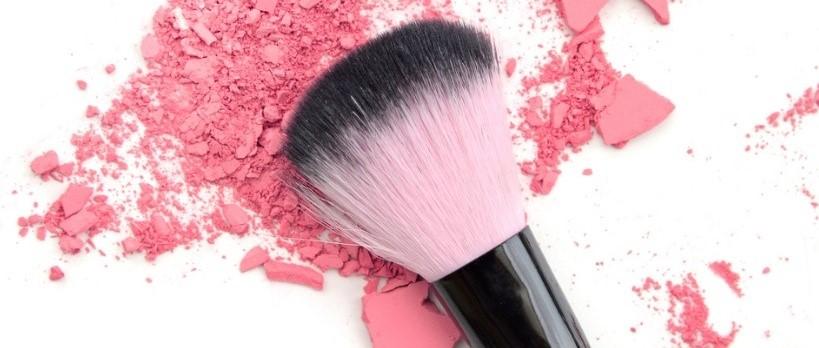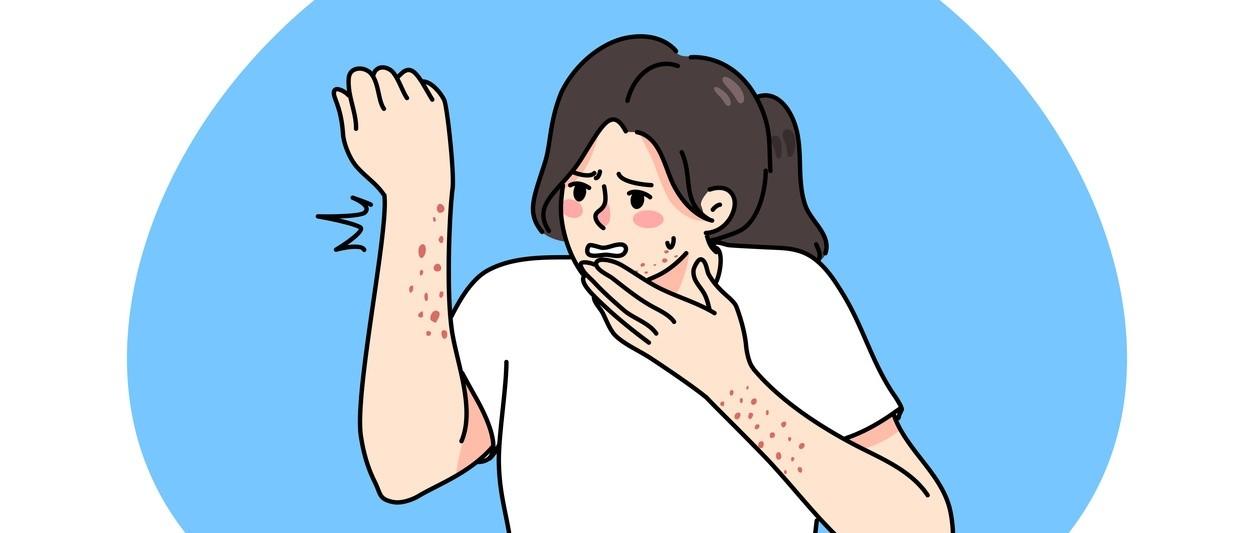
Common rosacea triggers and how to avoid them
Peer reviewed by Dr Krishna Vakharia, MRCGPAuthored by Gillian HarveyOriginally published 12 Oct 2022
Meets Patient’s editorial guidelines
- DownloadDownload
- Share
- Language
- Discussion
One in ten people in the UK are thought to be suffering from rosacea - a condition that causes redness and flushing of the skin. Like many skin conditions, its exact cause is unknown. But the good news is that treatments are available, and people living with rosacea can take steps to minimise redness and flare-ups.
In this article:
Continue reading below
What is rosacea?
Rosacea is a skin condition that can cause spots, redness, and flushing of the skin - usually covering the face or around the eyes. Other symptoms include visible blood vessels, and some people also experience thickening of the skin and/or small bumps that may be filled with pus.
Symptoms tend to wax and wane for many people - and the condition may even go away for periods of time. While younger people do experience rosacea, it often develops in middle age.
How is rosacea usually treated?
While the redness of rosacea may flare up in response to certain foods, the first port of call is not to investigate diet but to make an appointment with a GP or a specialist doctor who will be able to advise you of medical treatments available to manage the condition. Treatments include antibiotic treatment and specialist creams.
However, to keep symptoms and redness to a minimum, it's worth looking at dietary triggers and finding ways to manage these too.
Continue reading below
What can trigger rosacea?
When talking about rosacea ‘triggers’, it is important to establish what is meant by this term. “You can’t cure rosacea just by dietary change,” explains Dr Adam Friedmann, consultant dermatologist at Stratum Clinics. “But there is a long list of things that can flare up the redness including hot drinks, spicy foods, cheese, caffeine, alcohol, exercise, stress, and extreme temperature.”
What foods can trigger rosacea?
“The simple rule is that anything that is going to dilate blood vessels will make it appear worse, this includes food or drink that is particularly acidic or spicy.” says Friedmann.
Some people with rosacea opt to minimise or eliminate all triggers from their diet in an attempt to control symptoms. These tend to vary from person to person, meaning identifying, and avoiding, rosacea triggers in an individual case can take time. "Eliminating a food from your diet completely will not mean that you say goodbye to your rosacea. However, it may help to reduce some of the symptoms," explains Elizabeth Rimmer, Clinical Director of London Professional Aesthetics.
How to identify rosacea triggers
In order to pinpoint triggers for your rosacea, it is worth taking time to understand your skin and how it is responding. For example, by keeping a food diary. "The purpose of a food diary is to try to establish any links between certain foods and changes you notice in your skin,” says Rimmer. "Keeping a food diary can be done in lots of different ways but the most important thing is to include everything - sauces, drinks, snacks".
If you do find something that seems to exacerbate the redness in your case, you may decide to eliminate it from your diet. However, it's important to be realistic as to how effective such elimination will be and weigh up the pros and cons.
"This decision really should be taken by yourself. How much does rosacea bother you? How hard would it be to eliminate the chosen food? It’s important to retain balance in life and not to make yourself miserable in your quest for better skin care. In the same way, if your skin is making you feel miserable, then making a few dietary compromises will seem worthwhile," explains Rimmer.
Can stress trigger rosacea?
Stress has also been identified as a possible trigger for rosacea flare-ups in some patients.1
Stress can be difficult to manage, but it's worth taking the time to find ways to reduce flare-ups, and your excess stress. Again, being realistic is important. "Stress has many negative effects on our health and yet it is inevitable and even necessary to a degree. Learning how to manage your stress in life is one of the most valuable things you can achieve. It's different for everyone and it's a continuous challenge throughout life," Rimmer adds.
Reducing excess stress may help with rosacea and should also improve your quality of life overall.
Continue reading below
Can exercise help or hinder rosacea symptoms?
We’re used to being told certain foods are bad for our health. And few of us are under any illusions about the impact of stress. But there is also another possible rosacea trigger – exercise.
“Exercise can be a trigger for rosacea. You are hot, this dilates blood vessels in the skin in order to help the body cope with the increased internal temperature. In a face already susceptible to flushing, this will have an impact,” says Rimmer.
While cutting out exercise is not medically recommended, it may be that changing your exercise method could make a difference.
"I would never advise against exercise to save your skin - we all know the enormous benefits of exercise. If you want to minimise the disruption to the skin, avoid hot yoga and long periods of intense cardio as well as aerial activities requiring you to be upside down. Gentle cardio, weight training, and stretching are all invaluable to your general health and wellbeing," says Rimmer.
Long term management of your rosacea
Like many skin conditions, rosacea tends to change over the years. This means you may find new triggers, or experience unexpected flare-ups over time. You may also experience periods without symptoms.
Rimmer says: "Invariably your rosacea triggers will change over the years as your own internal physiology changes. There are plenty of resources to help you to understand rosacea and provide you with the knowledge to narrow down the factors that are relevant to you individually. Our skin is a living, changing organ and with skin challenges you have to understand that the goal posts can move at different points in your life."
It's important, therefore, to practice a degree of acceptance of the condition. Minimising it but not allowing it to affect your daily life too adversely. Good management should mean flare ups are kept to a minimum, and in time those with rosacea can learn how best to manage their condition in a way that feels right for them.
Further Reading
Patient picks for Skin rashes

Skin, nail and hair health
What it's really like to live with rosacea
When Lex Gillies was 21, she went to the doctor with symptoms she describes as 'unbearable'. Over the previous three years, her always-sensitive skin had become increasingly prone to flushing, and that flushing was taking longer to go down.
by Abi Millar

Skin, nail and hair health
Rise in scabies cases across the UK
The number of people with scabies is around double the expected amount for this time of year. We explain what scabies is, how to spot it, and what to do about it.
by Amberley Davis
Continue reading below
Article history
The information on this page is peer reviewed by qualified clinicians.
12 Oct 2022 | Originally published
Authored by:
Gillian HarveyPeer reviewed by
Dr Krishna Vakharia, MRCGP

Ask, share, connect.
Browse discussions, ask questions, and share experiences across hundreds of health topics.

Feeling unwell?
Assess your symptoms online for free
Sign up to the Patient newsletter
Your weekly dose of clear, trustworthy health advice - written to help you feel informed, confident and in control.
By subscribing you accept our Privacy Policy. You can unsubscribe at any time. We never sell your data.